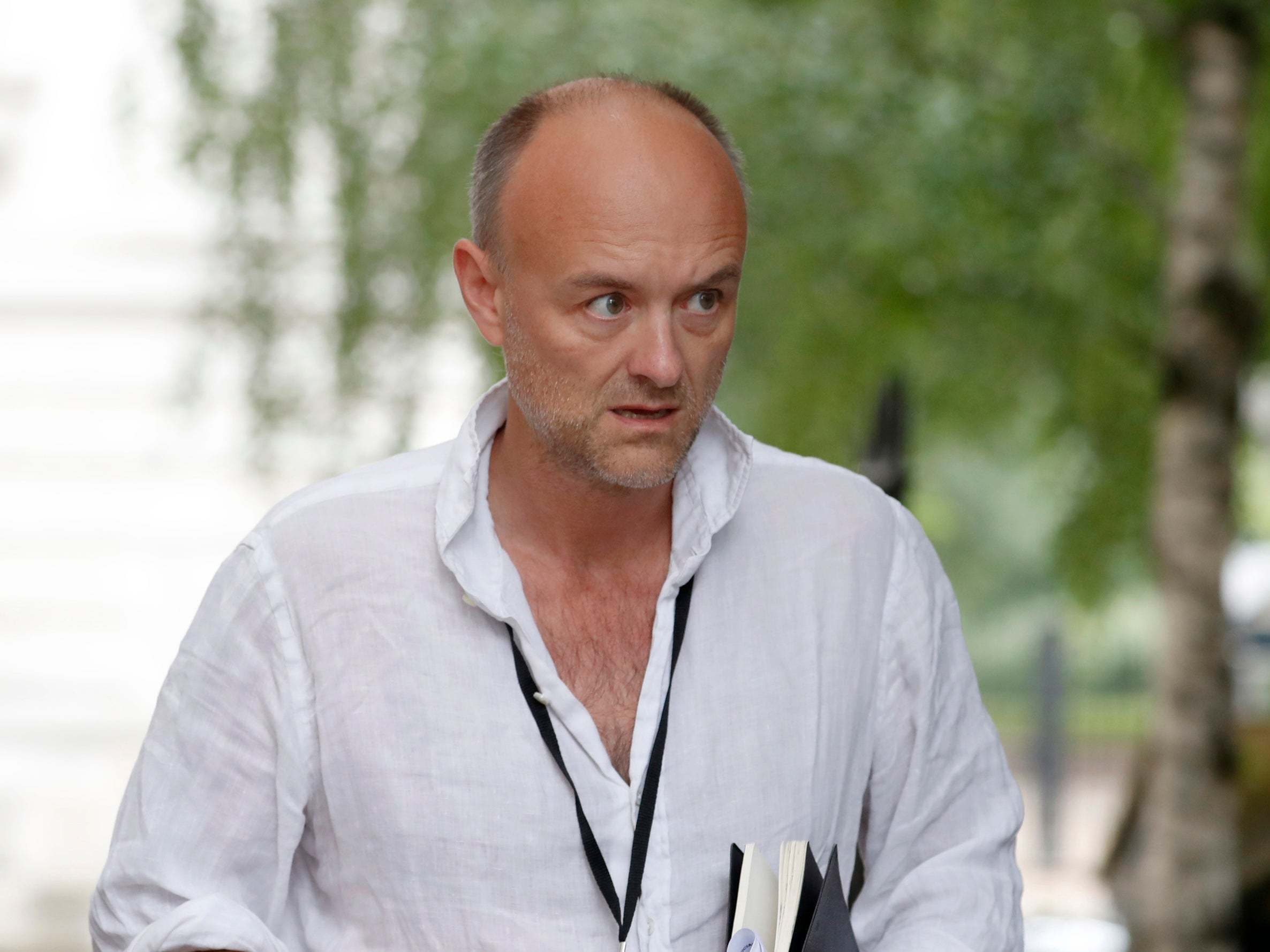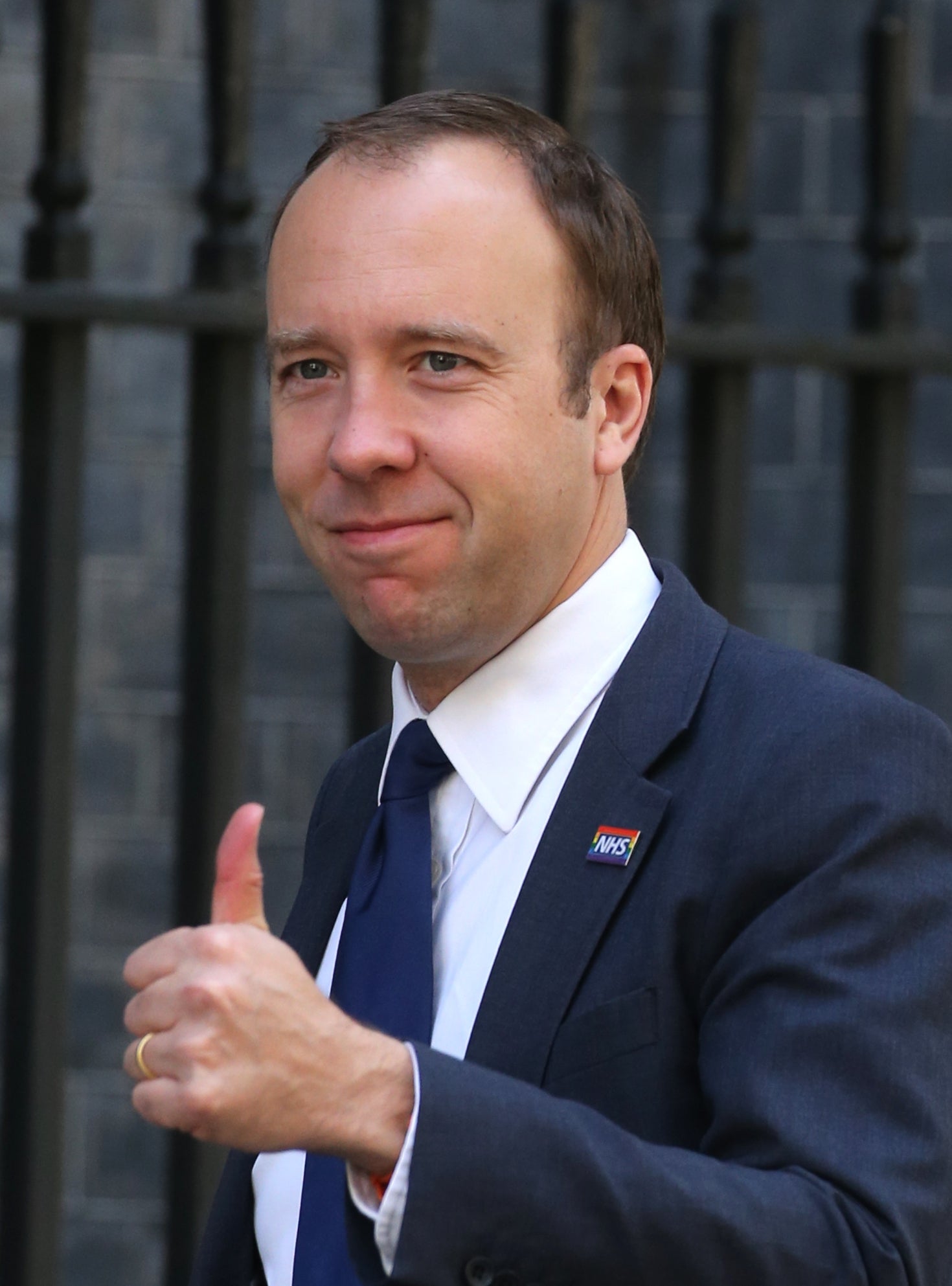Brexit: Boris Johnson accused of believing he has 'divine right to rule' after No 10 says nothing can stop Britain crashing out on 31 October
Boris Johnson's official spokesman refused to discuss how the PM would respond if MPs vote to block no-deal
Your support helps us to tell the story
From reproductive rights to climate change to Big Tech, The Independent is on the ground when the story is developing. Whether it's investigating the financials of Elon Musk's pro-Trump PAC or producing our latest documentary, 'The A Word', which shines a light on the American women fighting for reproductive rights, we know how important it is to parse out the facts from the messaging.
At such a critical moment in US history, we need reporters on the ground. Your donation allows us to keep sending journalists to speak to both sides of the story.
The Independent is trusted by Americans across the entire political spectrum. And unlike many other quality news outlets, we choose not to lock Americans out of our reporting and analysis with paywalls. We believe quality journalism should be available to everyone, paid for by those who can afford it.
Your support makes all the difference.Boris Johnson has been accused of behaving like a Stuart monarch who believes he has the "divine right to rule", after Downing Street said the UK would leave the EU on 31 October "whatever the circumstances".
Boris Johnson’s official spokesman repeatedly declined to say whether the prime minister would respect a Commons vote to prevent no-deal, insisting that it was a “hypothetical” issue as no such motion has yet been tabled.
His comments came after Mr Johnson’s senior adviser Dominic Cummings reportedly said that a vote of no confidence in the PM could not stop no-deal, as he could simply call a general election for a date after the Brexit deadline of 31 October, ensuring EU withdrawal happened during the campaign.
But the prominent Tory opponent of no-deal, Dominic Grieve, dismissed Mr Cummings' suggestion as "complete and total nonsense", insisting that it would be open to MPs following a no-confidence vote to install a new administration willing to delay Brexit to avoid crashing out without an agreement.
"The suggestion that Mr Johnson can stay in office after a vote of no confidence if an alternative administration is capable of taking office is complete and total nonsense," Mr Grieve told The Independent.
And Labour MP Stephen Doughty, a leading supporter of the People's Vote campaign for a second referendum, said: “The PM’s spokesperson needs to catch up with the news. It is more than 320 years since the question of whether parliament or the executive is sovereign was settled, and parliament won.
"Instead of impersonating Stuart monarchs and claiming a divine right to rule, the prime minister and his retinue should recognise they have to submit to democracy and have no right to impose no-deal or any vicious Brexit on us. Instead, it is time to trust the people and let us be heard in a Final Say referendum on whatever comes out of the Brexit crisis."
Asked at a regular Westminster media briefing whether the PM agreed it was now too late for MPs to stop no-deal, Mr Johnson’s spokesman said: “The UK will be leaving the EU on 31 October, whatever the circumstances. There are no ifs or buts.
"We must restore trust in our democracy and fulfil the repeated promises of parliament to the people by coming out of the EU on 31 October.
"Politicians cannot choose which votes to respect. They promised to respect the referendum result and we must do."
Asked repeatedly whether Mr Johnson would respect the result of a vote in parliament to block no-deal or to express no confidence in him as PM, the spokesman said; “I’m not in the business of talking about things that haven’t happened.”
And when he was challenged on whether Mr Johnson would observe as a general principle the requirement to respect the result of parliamentary votes, the spokesman replied: “There aren’t votes that have taken place. I am not engaging in some hypothetical game.”
Under electoral law, after MPs pass a vote of no-confidence in the prime minister, an election is triggered if neither the existing PM or an alternative is able to win the confidence of the Commons in a vote over the following 14 days.
Although it seems unlikely that Labour leader Jeremy Corbyn would be able to win a confidence vote in that time, anti-Brexit MPs have suggested that it may be possible for a unity candidate - such as Hilary Benn or Sir Oliver Letwin - to do so on the single policy of extending Brexit negotiations to avoid no-deal.
But Mr Cummings’ reported comments suggest that he believes Mr Johnson could simply sit the 14 days out before calling a poll for November, ensuring that MPs were away from parliament at the key moment when Brexit happens.
Mr Johnson’s spokesman declined to comment on reports that cabinet secretary Sir Mark Sedwill had advised the PM that he would be bound by convention not to take major policy decisions - such as taking the UK out of the EU - during the campaign period.

Attorney general Sir Geoffrey Cox is reported to believe that there is no legal bar to EU withdrawal during an election period.
And the PM’s spokesman told reporters: “The legal default, as put in place by parliament, is that the UK will leave on 31 October with or without a deal.”
Mr Grieve insisted on Sunday that there remain “a number of things” which the House of Commons can do to prevent no-deal, including bringing down the Government and setting up a new one in its place.
But asked whether he believed parliament could stop Mr Johnson from taking the UK out of the European Union without a withdrawal agreement, health secretary Matt Hancock told BBC Radio 4’s Today: “ I now don’t think it can.
“I thought that it could and the votes went differently to what I anticipated. When the facts change, even as a politician you have to change your mind.”

Mr Hancock denied that the government was planning for an early election to force no-deal through.
“Honestly, I haven’t talked to Dominic or the prime minister or anybody else in Westminster about this idea,” he said.
"I don't want one. I don't think we need one.
"I think what we need is to deliver Brexit and to deliver on our top domestic priority, which is the NHS.”
During the campaign for the Tory leadership, Mr Hancock was one of the few candidates ruling out the no-deal option, which he said was “unachievable” because of the scale of opposition in the Commons.
He said that he changed his mind after a vote a few days later on 12 June, in which the Commons rejected by 309 votes to 298 a motion tabled by Labour’s Jeremy Corbyn, which would have allowed MPs to take control of the parliamentary timetable in the autumn to stop no-deal going through.
“Parliament was asked if it would stop a no-deal Brexit,” said Mr Hancock. “I thought that would go through and in fact the government won by 11. It has changed my mind because the parliamentary arithmetic didn’t play out as I expected.”
Just 10 Conservative MPs rebelled against the government in the 12 June division. Opponents of no-deal hope that their ranks would be swollen in any future vote by former ministers who followed the whip on that occasion, such as Philip Hammond, David Gauke, Rory Stewart and Greg Clark, and others who baulked at backing a motion tabled by the Labour leader.
Labour MP Anna McMorrin, a supporter of the People's Vote campaign for a second referendum, said: “Matt Hancock is simply wrong to say our sovereign parliament cannot stop a disastrous no-deal. MPs from all parties, including a number of Conservatives, have shown they are ready to seize control of the agenda or, if necessary, bring the Government down. To claim there is no majority against no-deal is patently absurd.
“Rather than downplaying the risks of no-deal, perhaps the health secretary should ask those working in the NHS what the impact would be. It is an outrage that he is willing to force this on the health service and the country without anyone except the 0.1% of the population who voted for Boris Johnson having any say over it whatsoever.
“This Brexit crisis has now come down to a simple question about whether we live in a democracy: can we allow Boris Johnson to force no-deal - or another vicious form of Brexit - on our country, without all of us having our voice heard? The only way to resolve this crisis is to give the public the final say.”
Subscribe to Independent Premium to bookmark this article
Want to bookmark your favourite articles and stories to read or reference later? Start your Independent Premium subscription today.

Join our commenting forum
Join thought-provoking conversations, follow other Independent readers and see their replies
Comments